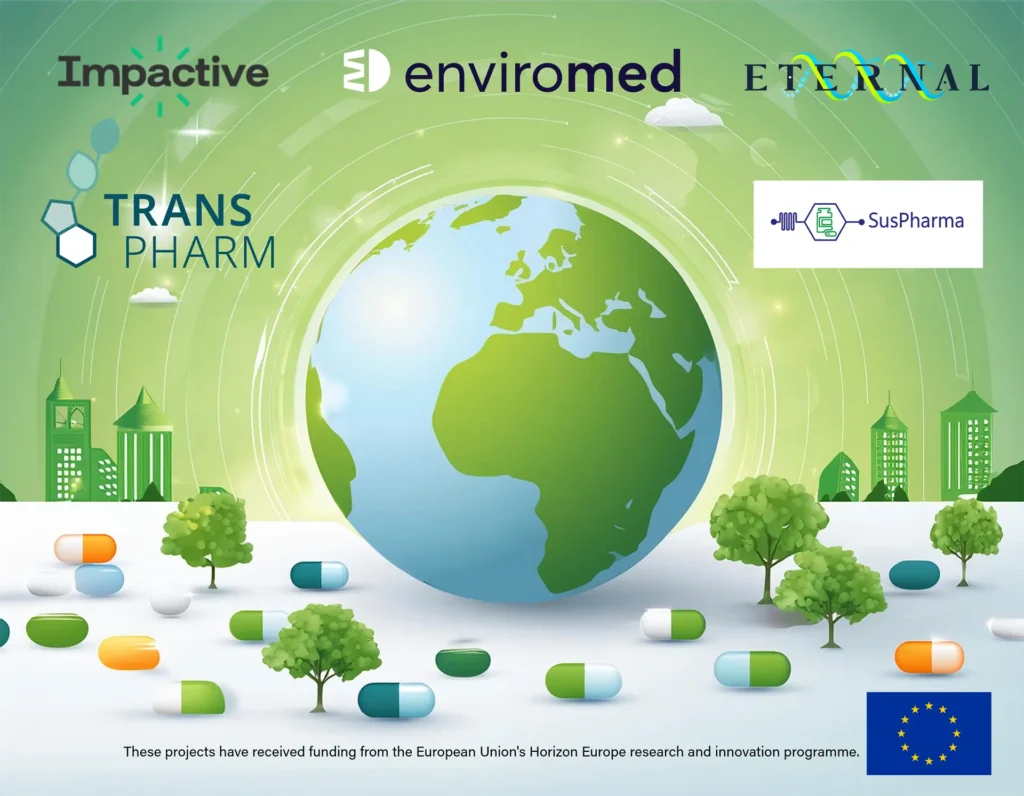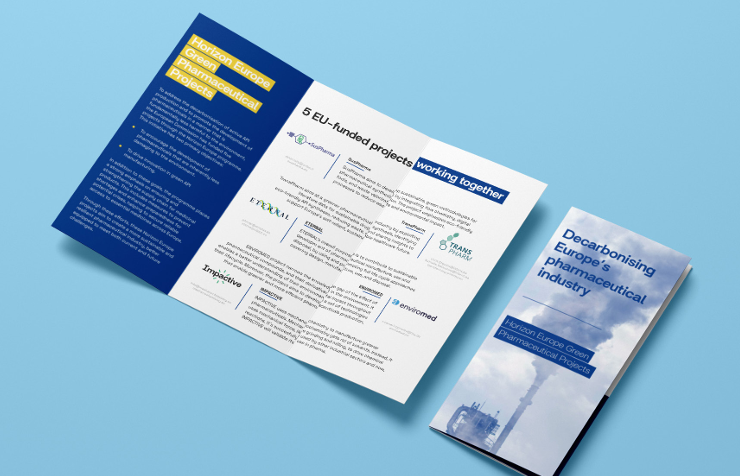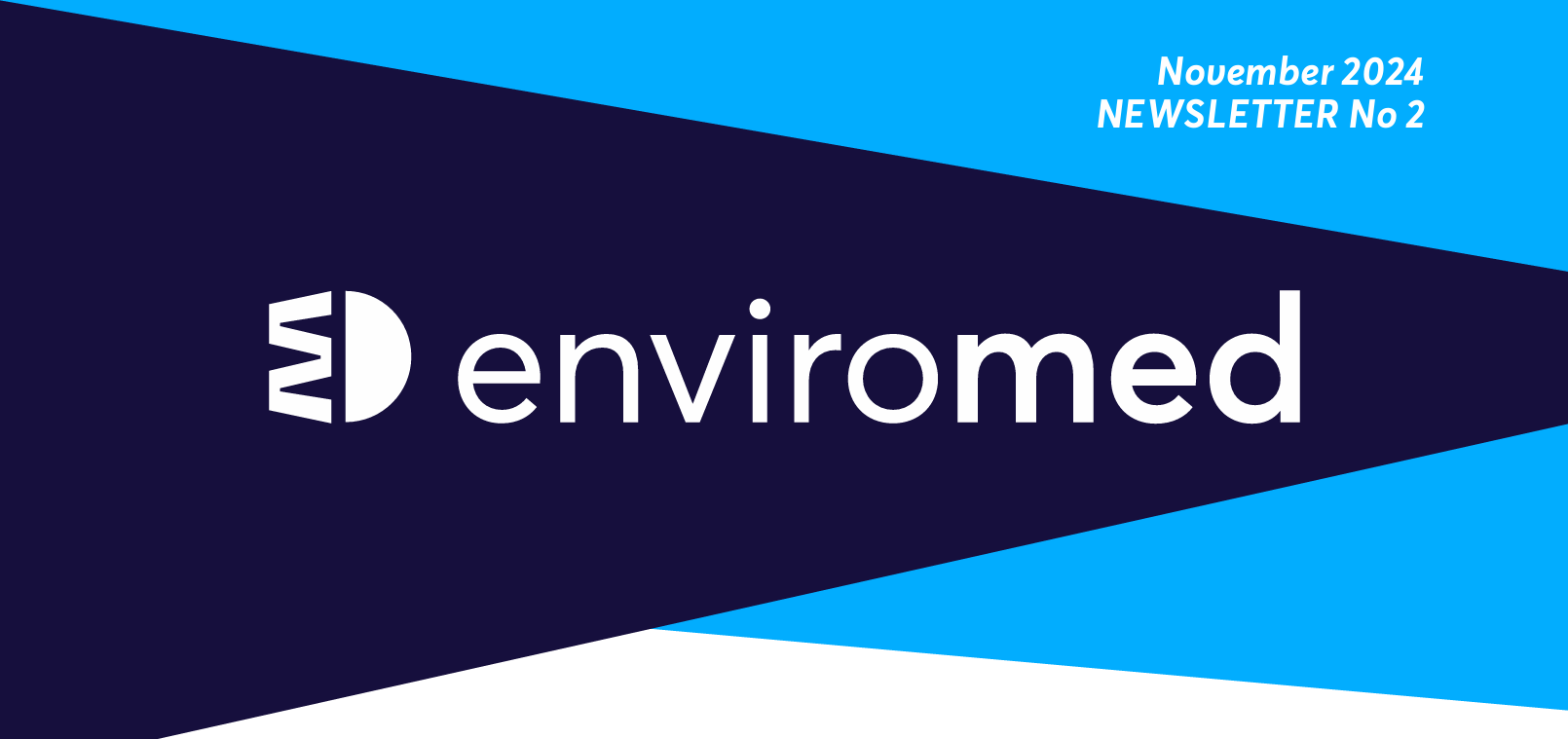
The new cluster of R&D projects aims to increase the sustainability of pharmaceutical products and exploit research synergies to boost the impact of its innovations.
Three working groups have been created: active pharmaceutical ingredient synthesis, pharmaceutical life cycle assessment and communication of key messages.
ENVIROMED and its sister projects, ETERNAL, IMPACTIVE, SusPharma and TransPharm, have joined forces to form a Green Pharma Horizon Projects Cluster and capitalize on synergistic development. The aim of this cluster of R&D projects is to increase the sustainability of pharmaceutical products and exploit research synergies to boost the impact of innovations.
“The Green Pharma Cluster is organized in three working groups. Each one represents an area of common interest across all the projects and an opportunity to achieve synergies”, explained ETERNAL coordinator Pablo Ferrer Pérez from AIMPLAS, the Plastics Technology Centre. “There’s no doubt that our science can be stronger and more efficient when we work together and that we can provide more effective advocacy for the systemic changes required for a sustainable healthcare system in the future”, Ferrer stated.
The first working group aims to research relevant methodological issues that include assumptions made in pharma life cycle assessment (LCA), such as the functional unit, system boundaries and life cycle impact assessment (LCIA) methods. It will also address LCA data quality and data availability.
The second working group, Green-Pharma API Synthesis, explores the synergies the projects can create by focusing on the synthesis of different active pharmaceutical ingredients.
Finally, the third group, led by ENVIROMED, collaborates on communication and dissemination activities by setting up two-way communication channels with target audiences in the technical community and the general public, and disseminating key messages that can have an impact on interested parties. This group has a plan in place for the next twelve months that will build collective communication assets and coordinate efforts in areas such as social media and participation in high-profile events.
ENVIROMED project narrows the knowledge gap when it comes to the effect of pharmaceutical compounds, and their derivatives in the environment, as it enables the better understanding of the environmental impact of such compounds throughout their lifecycle. It aims to offer (via extensive monitoring campaigns & scientific studies) information regarding occurrence of pharmaceuticals in the environment, their persistence, environmental fate, and toxicity (via in-vitro & in-vivo models) as well as application of in-silico methods to provide information about the basic risk management and fate prediction in the environment.
Moreover, the project aims to develop a set of technologies that enable greener and overall, more efficient pharmaceuticals production, which include:
- a) Green-by-design in-silico drug development;
- b) Novel sensing to allow reduction of rinsing chemicals and cycles;
- c) a robust Continuous Biomanufacturing line (CBM), which makes use of AI-enabled process optimisation and prediction, using data assimilation based on chemical sensing and energy disaggregation/monitoring.
ENVIROMED engages leading industrial partners in a participatory development of new methods, applies novel sensing methods and delivers a clear strategy roadmap for exploitable outcomes as well as engages citizens, health care providers and health systems for a Green Pharmaceuticals dialogue. 18 partners from Germany, Greece, Austria, Cyprus, Italy, UK, Switzerland and other EU countries gathered for 42 months to cooperate in providing means and methodology, which shall contribute to the Green Pharmaceuticals concept in the EU and shall focus on scientific impacts aligned with the ENVIROMES vision for the deployment of optimized, green production methods and better understanding of pharmaceuticals’ environmental impact.
This project has received funding from the European Union’s Horizon Europe research and innovation programme under grant agreement No 101057844



